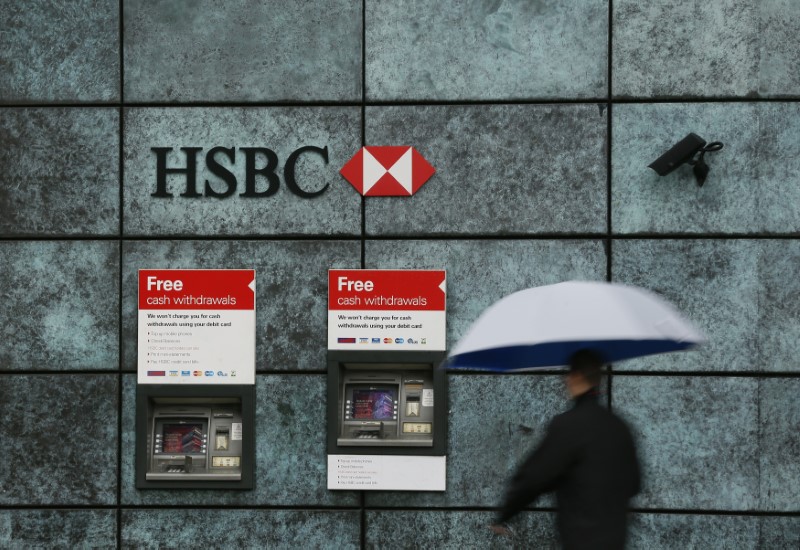By Geoffrey Smith
Investing.com -- When HSBC broke with a long tradition to oust John Flint as chief executive, many wondered just how bad things had got at the bank. News out late Sunday provides the answer.
An unconfirmed report by the Financial Times said that Flint’s replacement, Noel Quinn, is preparing to cut another 10,000 jobs from the lender. Given that Quinn is only in the position on an interim basis, that’s a powerful statement.
It also adds substance to the narrative around Flint’s departure – the board was too polite to spell it out explicitly at the time – namely, that the HSBC lifer was too tender-hearted to make the sort of cuts that the board felt were necessary to shore up profits.
The FT’s report indicates where those cuts might be felt. The bank’s global retail operations are set to bear the brunt, especially in the euro zone, where sub-zero interest rates have crushed profitability. With many expecting more aggressive quantitative easing and even lower interest rates from the European Central Bank when Christine Lagarde takes over next month, the logic of hanging on and waiting for things to get better has worn thin. HSBC’s network in France is reported to be under particular scrutiny.
HSBC is far from alone in facing an unmanageable two-way squeeze of costs and revenues – the infamous ‘Jaws’ that Flint and his cohorts have had to talk about in recent years. Deutsche Bank (DE:DBKGn) unveiled 18,000 job cuts earlier this year in a major strategic rethink, the big difference being that its problems were most acute in the U.S., the one major developed market where banking is still reasonably profitable. Societe Generale (PA:SOGN) and Barclays (LON:BARC) have also been trying hard to prune staff.
HSBC hopes that the cuts will create some space for it to hire more people in Asia, where the opportunities are greater. However, 10,000 is still barely 4% of the bank’s workforce. Given the long-term pressure on profits (the home market of the U.K. is also edging closer to cutting interest rates, increasing the squeeze on what is already a mortgage-heavy, low-margin franchise), it would be a surprise if Quinn’s successor, whoever he or she may be, turns out to have plenty of work still to do.
Deutsche has yet to reap much reward from its boldness (the external circumstances having moved against it in the meantime), but HSBC outperformed its peers slightly on Monday in an otherwise directionless market. The shares were down 0.4% by 5:15 AM ET (0915 GMT), while the FTSE 100 was down less than 0.1%. The broader Stoxx 600 index was effectively unchanged. Germany’s DAX was down 0.1% after another decline – albeit a gentler one – in factory orders in August.
